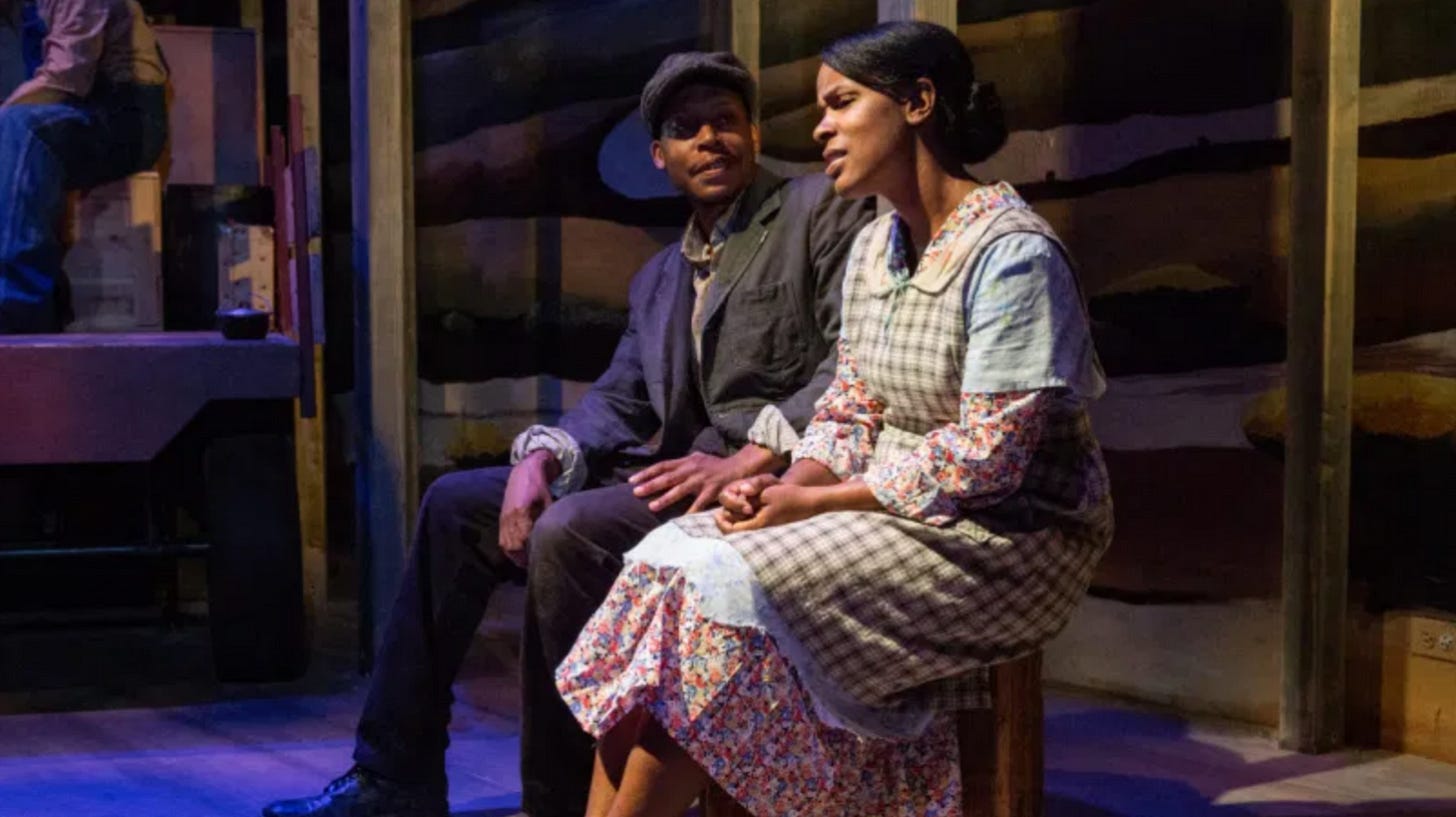GRAPES OF WRATH Features Solid Performances
Namir Smallwood and Kona N. Burks. Photo: Claire Demos
Seeing the epic journey of the Joad family in THE GRAPES OF WRATH at the Gift Theatre can be quite the immersive experience given the hot sticky days of summer. Tension turns up as the heat gets going and this production fills every inch of its intimate venue with the spot-on interpretations of the simple people looking for a better life in this classic John Steinbeck novel.
The cast turns in solid performances and navigates the story effortlessly. Sweet singing voices shroud the space in 1930’s Americana. Set, lights, costumes – all practical and period appropriate. For the most part, this production is a safe, true and sound interpretation of the book. No frills, but no disappointments, either. There was one choice in casting that arose confusion. At first, it wasn’t clear if it was made purposely to bring up same-sex relations during the 1930’s, but it was quickly understood that it was meant to reiterate blind casting given the nonchalant reactions from the rest of the characters. In general, it is to be applauded that the theatre community is beginning to see past traditional casting. In this instance, however, set in a realistic paradigm, the choice broke the rules of the world it had created. As genuine and heartfelt as that romantic moment was performed, it ultimately rendered unauthentic in this period specific drama.
A job well done in bringing this book to life. Although, reading a book in the comforts of your air-conditioned home and not being forced to experience the struggles of the Joad family all in one go has its pros. Then again, those struggles might not have felt as real had they not been captured by talented performers in a hot, intimate theatre for two and a half hours. Luckily, it’s a damn good book.
It’s hard for any one particular misery to stand out when everything that surrounds is miserable, yet the moments of humanity and kindness shine like sun-kissed glitter amidst the endless murk of the Dust Bowl. Steinbeck himself wrote that “no man really knows about other human beings. The best he can do is to suppose that they are like himself.” Thankfully, most of us, especially in the face of misery, despite the desperate circumstances, find a way to bring about our beacon of hope and fiercely shine our compassion.
June 24th, 2016





